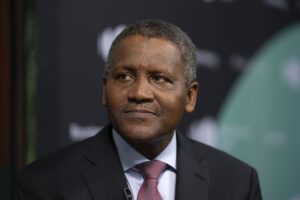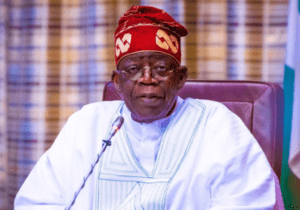Prince Abiodun: Budgeting for a glorious future for the masses of Ogun state
By Lekan Adeniran
It is an incontestable fact that the past four years and some months of Prince Dapo Abiodun’s transformational strides in governance in Ogun State, one of the Nigeria’s most promising and enviable states, has been powered by an irrepressible political will in leadership to modify past narratives through well-informed policies with a view to ensuring that dividends of democracy are rights of the governed and not privileges.
Yes, past governors may have done their best during their respective tenures to improve the socio-economic situation of the state but what Ogun State people and residents are today witnessing under the Prince Abiodun’s utilitarian and people – centered governance thrusts, especially in terms of improved funding of critical sectors of the state’s political economy and the results achieved, remain unassailably unmatched in the over 47 years of the rapidly evolving state for open opportunities for all.
Prince Abiodun, who has since assumption of office proved his intellectual resourcefulness, political sagacity, fairness and uncommon zeal for socio-economic emancipation of the governed, has lived up to his “Iseya” mantra by opening up the geo-political regions of the state to far-reaching development through leadership integrity and hard work at all levels of governance in the state.
A cursory appraisal of the 2024 Appropriation Bill presented to the state House of Assembly by the politically strategic government, as had been the case in the past, has again demonstrated Prince Abiodun’s determination to not only give the people more of democracy dividends, but to also strengthen the socio-economic and political strata of the state, raise the bar of accountability and further broaden the scope of opportunities for Ogun indigenes and residents for creativity and other life-supporting endeavours.
This view is exemplified by the funding allocations in the 2024 proposed budget, in which about 62 percent of the budgetary provisions are specifically targeted at grassroots development. For instance, the governor, apparently propelled by the innate zeal to give more to the citizenry through poverty alleviation initiatives, proposed that in the 2024 fiscal year, 30 percent of the appropriation would be committed to infrastructure; 16 percent to the education sector; 12 percent to health sector and 4 percent to housing & community development. Whao!
Quite impressively, the 2024 budgetary package unveiled by Prince Abiodun this year remains the best and most masses-focused when compared with other budgetary proposals by other state governors so far, especially ,when analyzed within the context of the fiscal thrusts on poverty alleviation, job creation, security, power supply, agricultural and commercial activities at sub-national level.
The governor, had last Friday while laying the Appropriation Bill 2024 before the state lawmakers, said that the “principal objective in 2024 is to maintain and enlarge our economic base while being strategic toward harnessing economic opportunities in the outer years of our administration.”
Titled: “Budget of Sustained Growth and Development” Prince Abiodun expressed optimism that the implementation of the budget would “sustain our administration’s quest for shared prosperity through the ISEYA mantra.”
He expatiated: “Our objective is to create an enabling environment for businesses and industries to thrive through friendly policies and provision of infrastructure; collaboration, fiscal prudence, and quality service delivery; expanding the revenue base in the area of internally generated revenue, and to also ensure timely completion of on-going developmental projects through equitable and effective distribution and allocation of available resources.”
To achieve these laudable objectives, the governor proposed a total expenditure of N703.03 billion, comprising N287.37 billion Recurrent and N415.66 billion Capital expenditures for the fiscal year.
As expected, the purposeful, committed and development-focused governor highlighted the key capital projects proposed for the fiscal year as including : the procurement and installation of transformers across the geopolitical zones of the state, and construction, rehabilitation, and maintenance of various roads, including major ones such as Lagos-Ota-Abeokuta Expressway; Ofada-Owode Road, Lagos Garage-Ikangba-Ilese Road, Ota-Lafenwa-Itele-Ayobo Road; Ita Oshin-Ibara Orile-Ijoga Orile-Ibooro-Imasayi Road; and the OPIC Estate Internal Roads, Agbara.
To demonstrate his commitment to the collective governance principle and sincere concern for the socio-economic welfare of the grassroots people in the state, Prince Abiodun also proposed to construct 250 kilometre road network across the three senatorial districts and by so doing, open up the grassroots for massive industrial and agro-based productivity with the attendant positive implications for improved Gross Domestic Product (GDP) growth rate for the state.
Other key projects proposed by the governor in the 2024 fiscal document include the Extension of the Lagos Blue Line Metro Rail Project into Agbara, Extension of the Lagos Red Line Metro Rail Project to Ijoko and Ifo/Kajola; introduction of 2 and 3-wheeled electric vehicles; expansion of CNG-fueled routes between major cities in the state; and construction of over 2,000 housing units in various locations across the state, among others.
Apparently convinced of the invaluable contributions of agriculture to the state’s development and current drive by the Federal Government towards food security, the governor assured improved investments in agricultural land development, maintenance of livestock feed, quality control, and production as well as input support for various farmers, and grant support for land clearing across the zones in the state.
Reflecting on his administration’s scorecard on massive infrastructure projects successfully executed in the past four years, Prince Abiodun told the lawmakers in the
House of Assembly that under the pillar of Infrastructure, the administration had extended development to every ward in the 20 Local Government Areas of the state and that the government had constructed, reconstructed, and rehabilitated over 500 kilometers of roads across the three senatorial districts.
On the “Go Green” power generation global agenda in which the governor has remained the foremost crusader in Nigeria, Prince Abiodun, in demonstration of his innovativeness and pace-setting attributes, restated the administration’s commitment to exploring green energy solutions, leveraging on liquefied or compressed natural gas to power homes, industries, and commercial vehicles with the attendant positive implications for healthy living for the people and cost-efficient power for businesses.
Noting that his administration has installed over 500 transformers across communities which have improved power supply in the 20 Local Government Areas under the Community Electrification Project, the governor said that the expansion of the Ogun State Electricity Distribution System would cover more areas, especially the corridor from the Sagamu Interchange to Abeokuta (As a phase 1 Project).
He further expatiated: “As part of initiatives in our recently-launched Energy Transition Programme, we have also recently launched our CNG-fueled mass transit bus system in partnership with the private sector to reduce transportation costs for our citizens.
“We will be launching the Mowe/Ibafo to Lagos service route to service the citizens in that corridor. Ogun State is leading the pack in energy transition as we are on record as the first state to deploy these buses in Nigeria.
“As a result of our boldness and tenacity in steps taken to cushion the effects of the subsidy removal and high cost of diesel fuel, we have been selected to host the 18th National Council on Transport Conference where the new National Policy on Transportation will be formulated.”
The governor also spoke on his administration’s plans to enhance the state’s transportation system through the Ogun State Urban Transport Policy and Strategic Multi-modal Transport Master Plan, which is currently being implemented and optimizing the Gateway Status of Ogun State through the implementation of a multi-modal transportation network, comprising air, rail, road, and water transport infrastructure network.
Recognizing the socio-economic benefits of cargo transportation to the growth of the state’s Gross Domestic Product (GDP), and job creation, the governor also restated his determination to ensure that the Gateway Agro-Cargo International Airport, which he described as “one of the crowning achievements of our clear vision,” and the accompanying aerotropolis (airport city) are completed under a Public-Private Partnership (PPP) arrangement to further boost the state’s economic growth on a sustainable basis.
Apart from the revenue generation potential of the world class projects, the governor spoke on their job creation benefits, projecting that when completed and fully operational, the airport and its allied businesses in the aerotropolis, are expected to generate over 25,000 direct and indirect jobs.
With digitalization fastly turning to the pivotal hub for driving growth of global economies, Prince Abiodun harped on the plans by the government to achieve total broadband coverage across the state’s three senatorial districts through the recently launched Digital Economy Infrastructure Project designed to provide 5000 kilometers of optic fiber cables across the state even as he spoke on the training of thousands of youths to prepare them for the emerging digital economy not only in the State but also in areas of national and international interests.
The governor, apparently conscious of the macroeconomic dynamics, regulatory concerns, institutional challenges, and structural issues that may undermine his administration’s efforts to make Ogun State the preferred destination for local and foreign investments, also spoke on the massive investments to make the state more investment-friendly through regulatory measures.
According to him, on the Ease of Doing Business and Investment Promotion, the government has invested in automating business processes to improve efficiency and the Ease of Doing Business Index in the state. He listed some of the processes to include initiating requests for permits, tax administration, and online payments.
Prince Abiodun clarified: “Furthermore, in a bid to encourage investments from both local and foreign investors and create a business-friendly environment, under my leadership, we have set up and operationalized the Public Private Partnership (PPP) office, the Investment Promotion and Facilitation Agency (OgunInvest) and the Business Environment Council (BEC) all to make investing and doing business in Ogun State easy through a one-stop shop platform and improved business processes.”
With the above remarkable strides and his several career highs at local and global levels, analysts believe that Prince Abiodun remains one of the most selfless and futuristic youth leaders that, given the needed support, can help to restore the lost glory of Nigeria and restore hope to millions of the upcoming youths, especially in Ogun State, most of whom today are not sure of what the future holds for them in this richly blessed and potentially great country.
Adeniran is Chief Press Secretary (CPS) to the Governor of Ogun State




